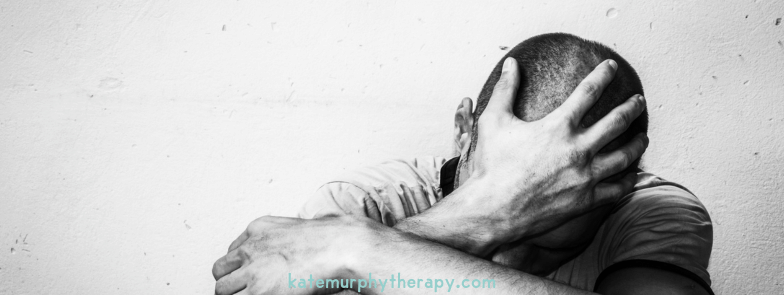
18 Mar Adoption Loss: When Grief is Suffocated
Adoption Loss: When Grief is Suffocated
When someone we love dies, grief can feel suffocating. The fact that we will never talk or touch the person we hold dear again is overwhelming. It is hard to assimilate the loss of a loved one into a felt sense of reality.
That kind of suffocating grief is not what I am writing about here. Although, as a society we may end up punishing the above grief response if it carries on too long. As a society, we are not tolerant or comfortable with grieving.
 Most work and school spaces do not offer an appropriate time off to adjust to the loss of a loved one. A student may be unable to concentrate in class, have temper tantrums or poor attendance after the death of a loved one. Similar behavior in adults at work is just as prevalent. However, it takes a compassionate teacher or supervisor to accomodate these normal grief responses.
Most work and school spaces do not offer an appropriate time off to adjust to the loss of a loved one. A student may be unable to concentrate in class, have temper tantrums or poor attendance after the death of a loved one. Similar behavior in adults at work is just as prevalent. However, it takes a compassionate teacher or supervisor to accomodate these normal grief responses.
Dr. Tashel Bordere coined a term called Suffocated Grief. Suffocated grief is penalizing normal grief responses. Bordere’s research has shown an increase in incidence for members of lower socioeconomic groups and/or members of the BIPOC and LGBTQ+ communities. Therefore, punishing grief responses is more likely if the person is not part of a privileged group.
Suffocated Grief vs. Disenfranchised Grief
Bordere links suffocated grief not just to the death of a loved one, but also to experiencing sexual and domestic violence, race-based trauma, homicide, and gun violence. This is different than disenfranchised grief. Coined by Dr. Kenneth Doka, disenfranchised grief is not recognizing or validating loss. Suffocated grief, on the other hand, is when grief is actively penalized by a family member, friend, person in authority, or society at large.
“So, it’s one thing to not have your loss acknowledged. It’s another to have your loss be penalized for your grief expression, right? That’s further isolating.”
This term was new to me, but not what was being described. I appreciate Bordere’s work because it explains an important societal experience. Giving words to educate about damaging actions and the impact on individuals and groups can make a difference.
Adoptees & Suffocated Grief
 When I heard the description of suffocated grief, I immediately thought about my work within the adoptee community. I would like to highlight the connection to many adoptee experiences described by this term. I am not minimizing the experience of disenfranchised grief within adoption. It is a confusing and lonely experience to have the loss and trauma connected to adoption ignored. Both ignoring and punishment of grief is traumatizing.
When I heard the description of suffocated grief, I immediately thought about my work within the adoptee community. I would like to highlight the connection to many adoptee experiences described by this term. I am not minimizing the experience of disenfranchised grief within adoption. It is a confusing and lonely experience to have the loss and trauma connected to adoption ignored. Both ignoring and punishment of grief is traumatizing.
The key in suffocated grief is that – in this case an adoptee’s grief response – is not even recognized as grief. Behaviors like longing for family or genetic mirroring, wanting to talk about first family and why relinquishment happened, an inability to manage anger or anxiety, fear or sadness when experiencing marginalization by family or community are all examples of grief responses that are frequently punished through active shaming, minimizing, or dismissing.
Below are some examples of suffocated grief within the family, school, and systems such as adoption agencies or legislative. These examples are in no way all inclusive. They do represent situations that I consistently observe.
Family:
- Punishing trauma responses; temper, hypervigilance, ADHD.
- Anger or active dismissing of an adoptee’s desire to know about their first family.
- Actively keeping information, letters, and gifts from first mothers from the adoptee.
- Anger at the adoptee if they find their gifts or file with information contained.
- Disparaging the adoptee’s country of origin.
- Racial microaggressions that denigrate the racial minority group of the adoptee.
- First families rejecting adoptee’s bid for relationship and/or information.
- Supporting political groups or candidates that actively denigrate adoptee’s racial identity or country of origin.
- Actively dismissing an adoptee’s right to question their support.
At School:
- Punishing trauma responses; temper, hypervigilance, ADHD.
- Bullying or microaggressions about racial identity or not being wanted.
Systems:
- Adoption agencies that keep records from adoptees searching for keys to their identity.
- Laws that keep original birth certificates and files from adoptees.
- Mental health providers who dismiss relinquishment and adoptee life experiences as trauma.
- Political groups or candidates that denigrate adoptee’s racial identity and country of origin.
- Deporting adoptees (born prior to 2000) with incomplete citizenship paperwork.
 Understanding what is happening and the impact is important. Having a term like Suffocated Grief that encapsulates an intensely painful experience is helpful. Consciously or unconsciously, punishing a person or a group’s grief response is unacceptable. Naming and holding others responsible for what is happening can lead to asking or fighting for change within a family or larger system.
Understanding what is happening and the impact is important. Having a term like Suffocated Grief that encapsulates an intensely painful experience is helpful. Consciously or unconsciously, punishing a person or a group’s grief response is unacceptable. Naming and holding others responsible for what is happening can lead to asking or fighting for change within a family or larger system.
A first step is self-care in a form that resonates for you so that you can have a space to process grief openly. This may look like creating distance between yourself and offensive family member, joining a support group, writing/journaling, or beginning therapy.
Call or email me to set up a consultation to discuss therapy or to gain a referral in your area.
Keep in touch, subscribe to The Couch newsletter:
 Kate Murphy, LCSW
Kate Murphy, LCSW
Kate Murphy, a therapist in Chamblee, GA, specializes in helping you decrease stress and anxiety. You can live a more balanced, connected, and meaningful life. Kate works with individuals and couples to support healing, communicating, and experiencing joy more often. Personally and professionally she is part of the adoptee and LGBTQ community. Licensed in GA & FL.






No Comments